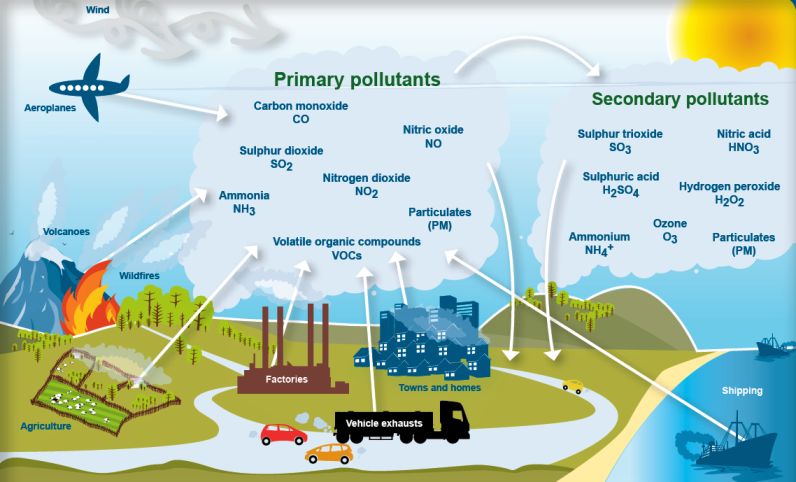Science
of Air Pollution
Air Pollutants | primary | secondary
Air pollution can be defined as natural or artificial introduction of chemicals, particulates, or biological materials (substances) into the atmosphere that causes harm or discomfort to humans or other living organisms, or damage the environment, i.e. natural or human-induced emissions that degrade the quality of the atmosphere.

These substances are called air pollutants that may be described as primary pollutants, i.e. those emitted directly to the atmosphere or secondary pollutants, i.e. those formed by chemical reactions between substances already in the air. The primary air pollutants of the greatest concern are suspended particulate matter, oxides of nitrogen, sulfur dioxide, carbon monoxide, hydrocarbons (volatile organic compounds), and lead. Ozone is the most important secondary air pollutant.